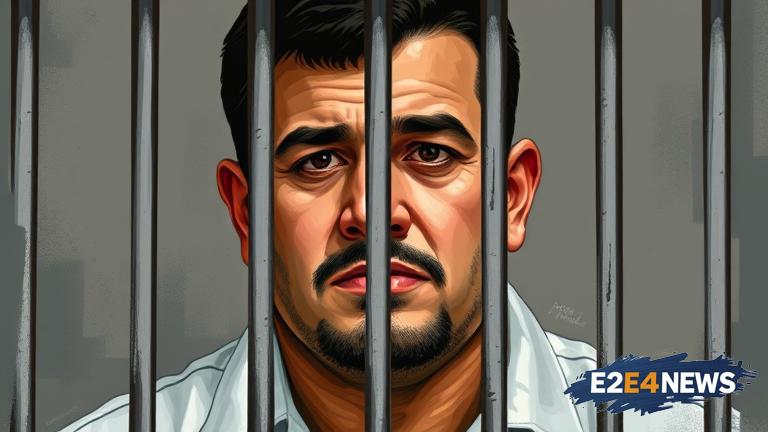In a significant development in the ongoing battle against organized crime, a co-founder of the infamous Sinaloa Cartel has pleaded guilty to various charges related to drug trafficking and other illicit activities. This guilty plea marks a major victory for law enforcement agencies, both in the United States and internationally, who have been working tirelessly to dismantle the cartel’s operations. The Sinaloa Cartel, known for its ruthless tactics and extensive reach, has been responsible for a substantial portion of the illegal drugs entering the US. The guilty plea by one of its top leaders is expected to have far-reaching consequences, potentially disrupting the cartel’s ability to operate effectively. The individual in question will face the remainder of their life in a US federal prison, a stark reminder of the severe penalties awaiting those involved in such criminal enterprises. This outcome is the culmination of years of investigative work and cooperation between different law enforcement agencies. The case highlights the importance of international cooperation in combating transnational organized crime. The Sinaloa Cartel’s influence stretches across multiple countries, making it a priority target for law enforcement globally. By pleading guilty, the co-founder has avoided a lengthy trial but will not escape the full force of the law. The sentence reflects the seriousness with which the US justice system treats such crimes. The impact of this guilty plea is expected to be felt within the cartel, potentially leading to power struggles or further fragmentation. However, it also serves as a deterrent to others involved in similar activities, demonstrating the commitment of authorities to pursue and prosecute those responsible for drug trafficking and related crimes. The Sinaloa Cartel has been linked to numerous violent crimes and has played a significant role in the drug epidemic affecting many countries. The guilty plea of its co-founder is a step towards holding accountable those at the top of such organizations. It underscores the resolve of law enforcement and judicial systems to tackle the root causes of drug trafficking. The life sentence also symbolizes the end of an era for one of the most notorious figures in the world of organized crime. As the legal process concludes, attention will turn to how this development affects the broader landscape of organized crime. The dismantling of key parts of the Sinaloa Cartel could lead to shifts in power among other criminal groups. Nonetheless, the guilty plea and subsequent sentencing serve as a powerful message about the consequences of engaging in such activities. It is a testament to the dedication and perseverance of law enforcement agencies. The case will likely be studied for its implications on future strategies to combat organized crime. In conclusion, the guilty plea by the Sinaloa Cartel co-founder and the ensuing life sentence mark a significant milestone in the fight against drug trafficking and organized crime. It demonstrates the effectiveness of international cooperation and the commitment to justice. As the world continues to grapple with the challenges posed by such criminal enterprises, this outcome offers a glimmer of hope and a reminder of the importance of concerted legal action.
